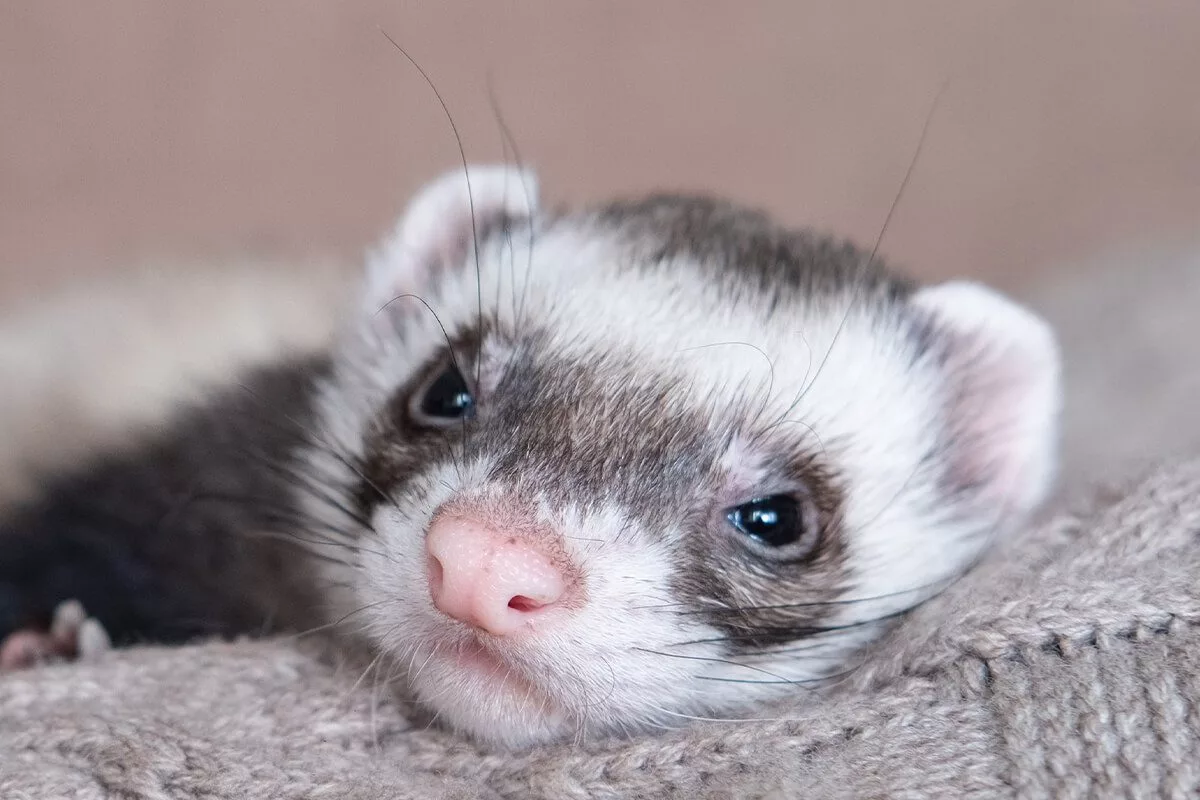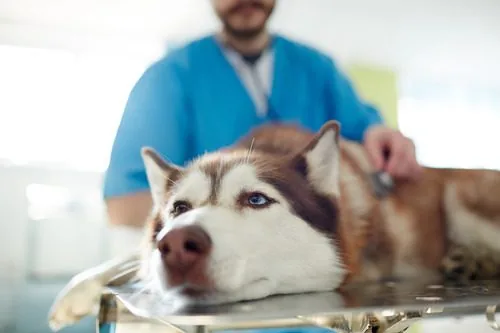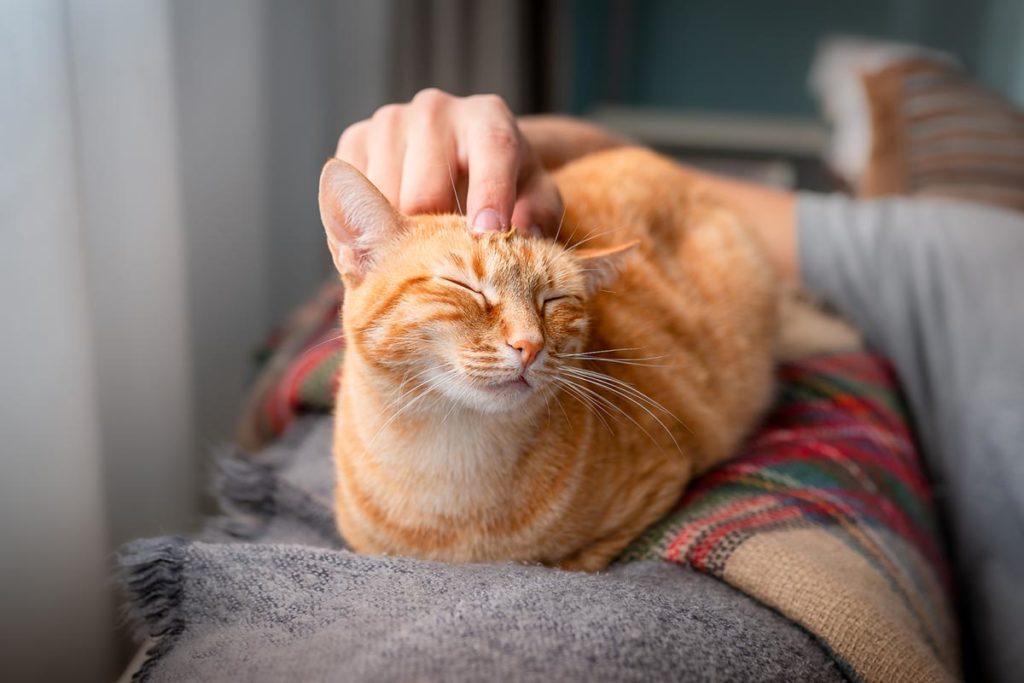What Should I Add to My Ferret’s Cage?
Ferrets should spend at least 4 hours out of their cages on a daily basis so they can explore their environment and interact with their owners. Since it’s a place where they’ll spend a lot of time, your ferret’s cage should be a comfortable, roomy, and enriching space. If you need to leave your ferret unsupervised for a little while or are traveling with them, their cage or carrier always needs to be properly equipped for their safety and wellbeing.
Below, our veterinarians share a resource for selecting the right ferret cage, and we also discuss what items the cage should include to best suit your pet’s needs.

What Kind of Ferret Cage Do I Need for My Pet?
Ferret cages vary widely in size, but whatever you choose, it should allow your ferret to move about freely and get the exercise they need, while also being secure so they can’t escape and get into trouble while you’re away. And last but not least, your ferret’s cage should be easy to clean and rearrange.
This resource from the American Ferret Association offers helpful recommendations for appropriate ferret cages and carriers. Whether you share your home with one ferret or two, there are plenty of options to accommodate your needs.
Essential Items to Include in Your Ferret’s Cage
There are several core items your ferret’s cage should have to keep them happy and healthy.
Food and Water Containers
The first and most obvious items to include in your ferret’s cage are food and water bowls. These come in different shapes, sizes, and materials, so it’s important to figure out what is most suitable for your pet.
Heavy crocks that can’t be easily knocked over are a good choice, but you can also opt for containers that can be attached to the sides of the cage. If your ferret is in the habit of making a mess with their water bowl, a side-mount water bottle (similar to what rabbits and other rodents use) might be a more prudent choice.
Litter Box and Litter
It’s important to choose an appropriate litter pan for your ferret’s cage. If they don’t like their current setup, your pet will likely have accidents outside the litter box and soil their cage frequently. You will also want to clamp the litter pan in place, so your ferret doesn’t shove it around or accidentally knock it over.
Ferrets also need a certain type of litter for their needs. It should be safe and capable of limiting unpleasant odors. Cat litter is not advisable, as it can stick to your ferret’s paws and face, be ingested accidentally, and kick up dust that can harm your ferret’s airways.
Instead, we recommend litter made from recycled paper, or a wood-based pellet form of litter. These materials are superior for odor control, in addition to being much safer overall. Make sure the bottom of the litter box is covered with a layer of litter, and for extra cleanliness, place a sheet of newspaper on top.
The litter pellets will soak up urine and the newspaper can hold feces. This allows for easy clean up, so you can just pick up the newspaper after it has been soiled and throw it away. The newspaper placement can also prevent your ferret from digging around in the litter, which is instinctive behavior for them.
Ferret-Friendly Bedding
Ferrets love to burrow. They need places to hide! Sleep sacks, tunnels, cups, hammocks, blankets, sleepers, and even old T-shirts to nestle in can all be wonderful bedding options for your ferret. In winter, you can give your ferret a fleece sleeper to keep them warm, then switch over to cotton in spring/summer.
Try out different styles of bedding to see what your ferret likes best!
Safe Toys to Play With
Your ferret cage also needs to contain safe, fun toys for your pet to interact with. When selecting toys, ensure that you are choosing ones that cannot be chewed up, choked on, or ingested. Hard plastic balls and flattened plush toys are safe options, and you can include an igloo or cave toy for hiding.
If you want to hang toys from the top of your ferret’s cage, make sure they are attached with a shower curtain ring, and not a string that can be chewed and potentially swallowed.
Contact Our Animal Hospital About Your Ferret’s Needs
Saratoga Veterinary Hospital provides exotic pet care for a wide range of species, including ferrets. If there is anything you need to know about properly setting up your ferret’s cage, choosing the right diet, or managing any of their other needs, our team is happy to answer your questions.
Give us a call at (518) 587-3832 to speak with us and, if needed, schedule an appointment with one of our vets!
Recent Posts
New Treatments for Arthritis in Pets: Librela and Solensia
New Treatments for Arthritis in Pets: Librela and Solensia Arthritis in pets is a common concern that…
Cushing’s Disease in Dogs: What You Need to Know
Cushing’s Disease in Dogs: What You Need to Know Cushing’s disease in dogs is a condition that…
What Shots Does My Puppy Need in Wilton, NY?
What Shots Does My Puppy Need in Wilton, NY? Welcoming a new puppy into the family is…
Frostbite on Dog Paws: The Signs and How to Prevent Them in Saratoga Springs, NY
Frostbite on Dog Paws: The Signs and How to Prevent Them in Saratoga Springs, NY While we…
How to Make Your Home a Cat Friendly Home
How to Make Your Home Cat Friendly in Wilton, NY Home is where the cat is, and…
About Saratoga Veterinary Hospital
Saratoga Veterinary Hospital is proud to serve as your local veterinarian of choice in WIlton, NY and the surrounding areas. Since its founding in 1973 by Dr. Sofarelli, our animal hospital’s main goal has been to strengthen the human-animal bond with exceptional veterinary medicine and client services.







